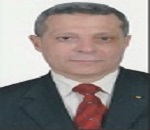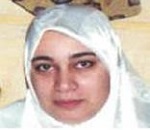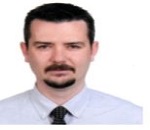Day 1 :
- Pharmaceutical Formulations | Formulation R&D | Clinical Research vs Clinical Trails | Bioavailability Studies and Assessment | Contract Research Organizations | Recent approaches to Biosimilars
Location: Conference Hall 1

Chair
Heyam Saad
Dubai Pharmacy College for Girls, UAE
Session Introduction
Tannaz Dehpouri
Emam Khomeini Hospital, Iran
Title: The output of a hospital-based phamacovigilance system in a referral center in north of Iran

Biography:
Abstract:
Mahmoud Balbaa
Alexandria University, Egypt
Title: Modification of the insulin signalling by Nigella sativa oil and antidiabetic drugs in streptozotocin-induced diabetic rats

Biography:
Abstract:
Heyam Saad
Dubai Pharmacy College for Girls, UAE
Title: The impact of surface funtionalization in design of targatted drug delivery system

Biography:
Heyam Saad, M. Pharm., and Ph-D. She is working as a head of pharmaceutics department in Dubai Pharmacy College, UAE. Prof. contributed more than 70 articles to reputed international scientific journals and conferences, in different conventional, controlled and targeted drug delivery systems in pharmaceutical product development. She has been invited as speaker to numerous International conferences .Reviewer and member of editorial board of many international journals.
Abstract:

Biography:
Naglaa Gamil is a professor of Pharmaceutical Chemistry and Natural Products Department and Chief Academic Officer at Dubai Pharmacy College. And an Associate Professor, Faculty of Pharmacy at Cairo University, Egypt. Her field of Specialization is major Field of Specialization, Pharmacognosy-Phytochemistry
Abstract:
Liver diseases are considered as one of the serious health problems, as it is an important organ for the detoxification and deposition of endogenous and exogenous substances. A number of pharmacological and chemical agents act as hepatotoxins and produce a variety of liver ailments. Steroids, vaccines and antiviral drugs which have been employed as a therapy for liver diseases, have potential adverse effects especially when administered for long terms. Traditional healing practices are now wide spread amongst about 80% of the developed countries population and often termed alternative or complementary medicine.
Aim: In the absence of reliable liver-protective drugs in modern medicine, hepatoprotective drugs from plant sources seem to have attractive alternatives. The aim of this scientific lecture is designed to focus in the medicinal plants as well as the other alternative medicines which can be used as hepatoprotective and antihepatotoxic agent.
Medicinal plants that are found in the Arabic Gulf, India and United State of America with scientific researches were discussed. The active constituents, mechanism of actions, safety, side effects and the contraindication of each plant were discussed as well. Other alternative medicines like aromatherapy, acupuncture therapy, breathing therapy and relaxation therapy were deliberated.
Rakesh S. Shivatare
JJT University India
Title: Novel drug delivery systems : new lifeline for herbal drugs

Biography:
Rakesh S. Shivatare has completed his Master in pharmacy (Pharmacognosy) at the age of 24 years from Pune University. He had worked as research officer and having 5 year experience in formulation analytical method development. He has published more than 15 papers in reputed national and international journals.
Abstract:
Novel drug delivery systems (NDDS) are designed to achieve a continuous delivery of drugs at predictable and reproducible kinetics over an extended period of time in the circulation. The potential advantages of this concept include minimisation of drug related side effects due to controlled therapeutic blood levels instead of oscillating blood levels, improved patient compliance due to reduced frequency of dosing and the reduction of the total dose of drug administered.
In the past few decades, considerable attention has been focused on the development of novel drug delivery system for herbal drugs. The novel carriers should ideally fulfill two prerequisites. Firstly, it should deliver the drug at a rate directed by the needs of the body, over the period of treatment. Secondly, it should channel the active entity of herbal drug to the site of action. Conventional dosage forms including prolonged-release dosage forms are unable to meet none of these. In phyto-formulation research, developing nano dosage forms (polymeric nanoparticles and nanocapsules, liposomes, solid lipid nanoparticles, phytosomes and nanoemulsion etc.) have a number of advantages for herbal drugs, including enhancement of solubility and bioavailability, protection from toxicity, enhancement of pharmacological activity, enhancement of stability, improving tissue macrophages distribution, sustained delivery, protection from physical and chemical degradation etc.
Thus the nano-sized novel drug delivery systems of herbal drugs have a potential future for enhancing the activity and overcoming problems associated with plant medicines.
Fazilatun Nessa
Dubai Pharmacy College for Girls, UAE
Title: Trace heavy metal contents of herbal products available in UAE pharmaceutical markets

Biography:
Fazilatun Nessa, Ph.D. is working as an Associate Professor in the Department of Pharmaceutical Chemistry and Natural Products of Dubai Pharmacy College for Girls, Dubai, UAE. She has completed her Ph.D. studies in Pharmaceutical Chemistry from Universiti Sains Malaysia, Penang, Malaysia. She has presented her several researches at International Conferences and published a number of research articles in peer reviewed international journals. Her research area comprised of isolation, characterization of bioactive compounds from natural sources, bioactivity evaluation of extracts/isolates, analytical method development/validation and quality-control studies of pharmaceutical/herbal products.
Abstract:
About 80% of world population use herbal products in one time of their lifetime therefore, research become more oriented and focused on the evaluation of safety and quality control of commercially marketed herbal products. In advanced researches it has been documented that plants contain not only beneficial minerals, secondary metabolites but also contain non-essential minerals, toxic elements as they are contaminated with environmental pollutants specially heavy metals. Thirty one over the counter herbal products that are available within the UAE pharmaceutical markets were investigated for the presence of seven heavy metals; Cd, Pb, Fe, As, Ni, Al and Hg and to determine whether or not they pose a risk of heavy metal toxicity in regards to World Health Organization (WHO) levels. Sample solution was prepared by a dry ashing or wet digestion procedure. All metals were analyzed either by Graphite Furnace or Flame Atomic Absorption Spectrometry. Method validation was performed by evaluating metal recovery studies and within-day precision studies. The studied samples of herbal products exhibited positive response for all heavy metals except Hg. The results were compared with established WHO permissible limits as for Provisional Tolerable Daily Intake for Pb is 0.02 to 3μg/kg BW (body weight), for Fe is 0.8mg/kg BW and for Ni is 12μg/kg BW; Weekly Intake for Hg is 1μg/kg BW, for Al is 1mg/kg BW and for As is 15μg/kg BW; and Monthly Intake for Cd is 25μg/kg BW respectively. In conclusion, the herbal products available within UAE contained tolerable levels of toxic heavy metals except Al and Fe for some products.
Jana Janockova
University Hospital Hradec Kralove, Czech Republic
Title: Prediction of BBB permeability using PAMPA assay
Biography:
Abstract:
- Drug Designing, Pharmaceutical Organic Chemistry Drug Target Discovery
Location: Conference Hall 1

Chair
Heyam Saad
Dubai Pharmacy College for Girls, UAE
Session Introduction
Rakesh S. Shivatare
JJT University India
Title: Inventing formula for drug development and analytical techniques is the key for pharmaceutical industries

Biography:
Rakesh S. Shivatare has completed his Master in pharmacy (Pharmacognosy) at the age of 24 years from Pune University. He had worked as research officer and having 5 year experience in formulation analytical method development. He has published more than 15 papers in reputed national and international journals.
Abstract:
The pharmaceutical industry is essentially defined by innovation. Research on the forefront of science, the creation of new knowledge bases, the invention of new medicines, and the improvement of existing drugs constitute the fuel that propels the firms in this industry.
Formulation can be categorized according to the route of administration. Pharmaceutical development information provides the scientific rationale for formulation development and justification for a suitable dosage form. Excipients are the major fraction of the solid dosage forms which serve as diluents to allow the formulation of appropriately sized tablets and coatings to protect the tablet from undesirable organoleptic qualities of the drug substance. Solid state reactions in the dosage form can occur when the drug substance is reactive and may be accelerated by physical and chemical interaction with excipients.
In the field of pharmaceutical research, the analytical investigation of bulk drug materials, intermediates, drug products, drug formulations, impurities and degradation products, and biological samples containing the drugs and their metabolites is very important. From the commencement of official pharmaceutical analysis, analytical assay methods were included in the compendial monographs with the aim to characterize the quality of bulk drug materials by setting limits of their active ingredient content. In recent years, the assay methods in the monographs include titrimetry, spectrometry, chromatography, and capillary electrophoresis; also the electro analytical methods can be seen in the literature.
Gokalp Iscan
Anadolu University, Turkey
Title: Antimicrobial and antioxidant activities of secondary metabolites of endophytic fungi isolated from origanum onites
Time : 11:20-11:50

Biography:
Abstract:
Yavuz Bülent Köse
Anadolu University, Turkey
Title: Essential oil composition and antimicrobial activity of salvia cryptantha montbret & aucher ex benth

Biography:
Köse received his M.sc degree in 2001 from Osmangazi University Graduate School of Science. He received his Ph. D. from the Anadolu University Anadolu University Graduate School of Science with. Now He is Prof. Dr. of Anadolu University Faculty of Pharmacy, Pharmaceutical Botany Department. He has published about 30 academic papers in reputed journals.
Abstract:
Bülent Ergun
Anadolu University, Turkey
Title: In vitro selectivity of anethol combination with standard antifungals against candida sp.

Biography:
Abstract:
Hadyah Al-otaibi
Pharmacist, Saudi Arabia
Title: Design of taste masked enteric orodispersible tablets of diclofenac sodium by applying fluid bed coating technology
Biography:
She aspires to cultivate my skills and knowledge to contribute in drug development and formulation of new combinations, which would serve my country and the world.aspire to cultivate my skills and knowledge to contribute in drug development and formulation of new combinations, which would serve my country and the world. She done her Bachelors Degree in Pharmaceutical Sciences from King Saud University in Riyadh, KSA. And her Master's Degree in Pharmaceutical Science from King Saud University in Riyadh, KSA.
